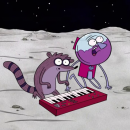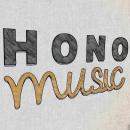Culturalibre.org
http://culturalibre.org/
Manifestamos,
que al calor de los resultados fruto del esfuerzo en la creación de contenidos culturales, existe una floreciente industria de difusión y distribución de dichos contenidos.
que la extrema vigencia temporal de los denominados "derechos de autor" tal y como están establecidos en la actualidad representan una barrera a la incorporación de la cultura al dominio público, bien común, en una época histórica análoga a la que acompaña la revolución de la imprenta.
que desde determinadas organizaciones se viene incurriendo en un proceso de demonización de la red de difusión, distribución e intercambio de información más igualitaria jamás concebida, así como en un afán recaudatorio injusto, abusivo y a todas luces excesivo.
que la mera edición impresa, o publicación de cualquier contenido audiovisual disfruta de unos derechos de explotación comercial cuyo plazo de duración, ampliado artificialmente, amenaza el ejercicio del derecho de acceso universal a la cultura.
que la historia reciente muestra, con ejemplos como los logros obtenidos por el software libre, que el poder creativo, intelectual y cultural de los inmensos colectivos a que dan lugar las redes de telecomunicaciones no puede ser despreciado.
que el acceso universal a la cultura beneficia tanto al público como a los creadores.
que nadie posee ni nuestros pensamientos, ni nuestras ideas.
Renegamos,
de los argumentos falaces que equiparan la cultura con la explotación comercial, industrial o que la degrada a un mero elemento de consumo.
Reivindicamos,
que acorde a los tiempos, se garantice el acceso universal y la distribución masiva, de forma libre y gratuita de todos los contenidos culturales propiedad del estado en sus fondos, bibliotecas o almacenes de depósito legal.
que la sociedad, la industria y los autores busquen un nuevo modelo de relaciones económicas que, en vez de constreñir el uso de las tecnologías de la comunicación, potencie y se aproveche de su desarrollo y multiplique sus beneficios.
que este nuevo acuerdo entre los autores y el público garantice las recompensas necesarias para incentivar la creación sin impedir la difusión de la cultura.
la limitación temporal de los llamados "derechos de autor" en unos términos más acordes con el derecho de acceso a la cultura reconocido por la Constitución Española y la Declaración Universal de Derechos Humanos.
La recuperación de las funciones originariamente atribuidas al Ministerio de Cultura en detrimento de la actual actitud de salvaguardia a la industria del entretenimiento.
Exigimos a nuestros representantes y poderes públicos,
que lleven a cabo las medidas ejecutivas y legislativas necesarias para llevar a la práctica las reivindicaciones arriba expuestas tanto en el ámbito nacional, como especialmente en el ámbito de la Unión Europea.
http://freeculture.org/
The mission of the Free Culture movement is to build a bottom-up, participatory structure to society and culture, rather than a top-down, closed, proprietary structure. Through the democratizing power of digital technology and the Internet, we can place the tools of creation and distribution, communication and collaboration, teaching and learning into the hands of the common person — and with a truly active, connected, informed citizenry, injustice and oppression will slowly but surely vanish from the earth.
We believe that culture should be a two-way affair, about participation, not merely consumption. We will not be content to sit passively at the end of a one-way media tube. With the Internet and other advances, the technology exists for a new paradigm of creation, one where anyone can be an artist, and anyone can succeed, based not on their industry connections, but on their merit.
We refuse to accept a future of digital feudalism where we do not actually own the products we buy, but we are merely granted limited uses of them as long as we pay the rent. We must halt and reverse the recent radical expansion of intellectual property rights, which threaten to reach the point where they trump any and all other rights of the individual and society.
The freedom to build upon the past is necessary for creativity and innovation to thrive. We will use and promote our cultural heritage in the public domain. We will make, share, adapt, and promote open content. We will listen to free music, look at free art, watch free film, and read free books. All the while, we will contribute, discuss, annotate, critique, improve, improvise, remix, mutate, and add yet more ingredients into the free culture soup.
We will help everyone understand the value of our cultural wealth, promoting free software and the open-source model. We will resist repressive legislation which threatens our civil liberties and stifles innovation. We will oppose hardware-level monitoring devices that will prevent users from having control of their own machines and their own data.
We won’t allow the content industry to cling to obsolete modes of distribution through bad legislation. We will be active participants in a free culture of connectivity and production, made possible as it never was before by the Internet and digital technology, and we will fight to prevent this new potential from being locked down by corporate and legislative control. If we allow the bottom-up, participatory structure of the Internet to be twisted into a glorified cable TV service — if we allow the established paradigm of creation and distribution to reassert itself — then the window of opportunity opened by the Internet will have been closed, and we will have lost something beautiful, revolutionary, and irretrievable.
The future is in our hands; we must build a technological and cultural movement to defend the digital commons.












